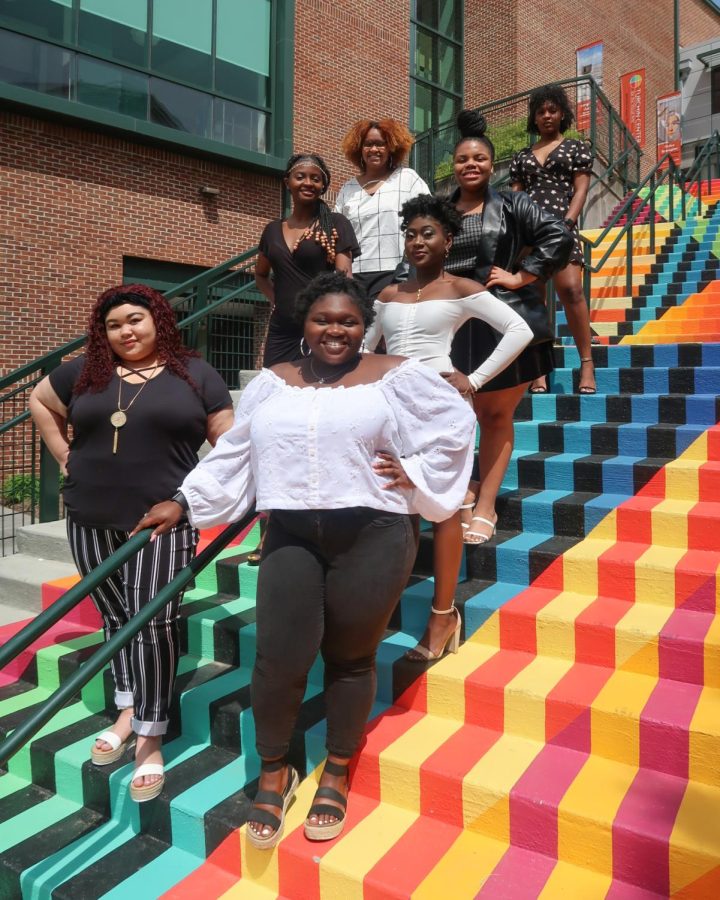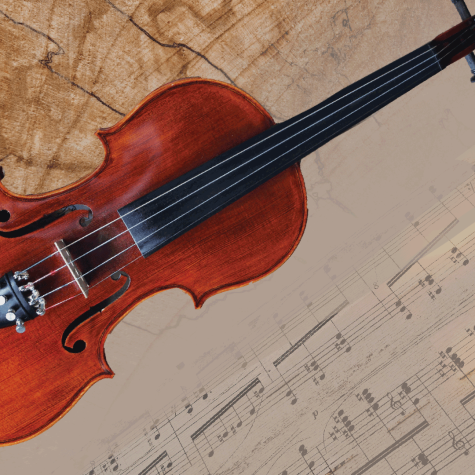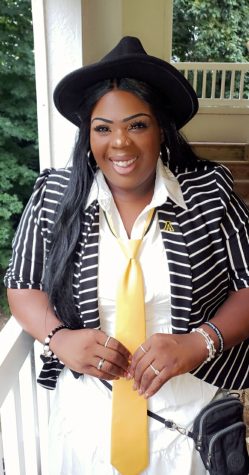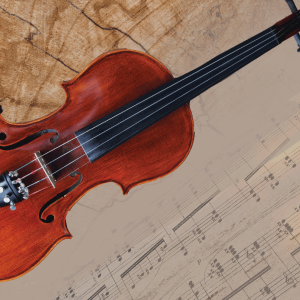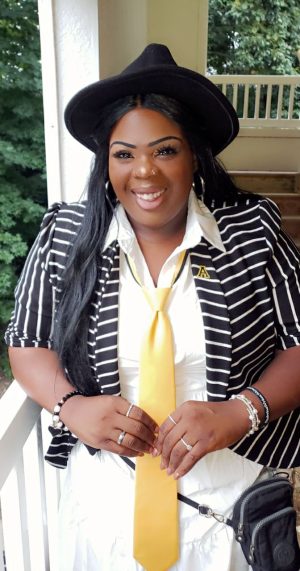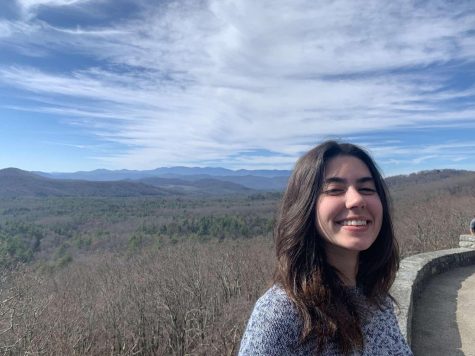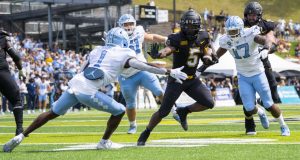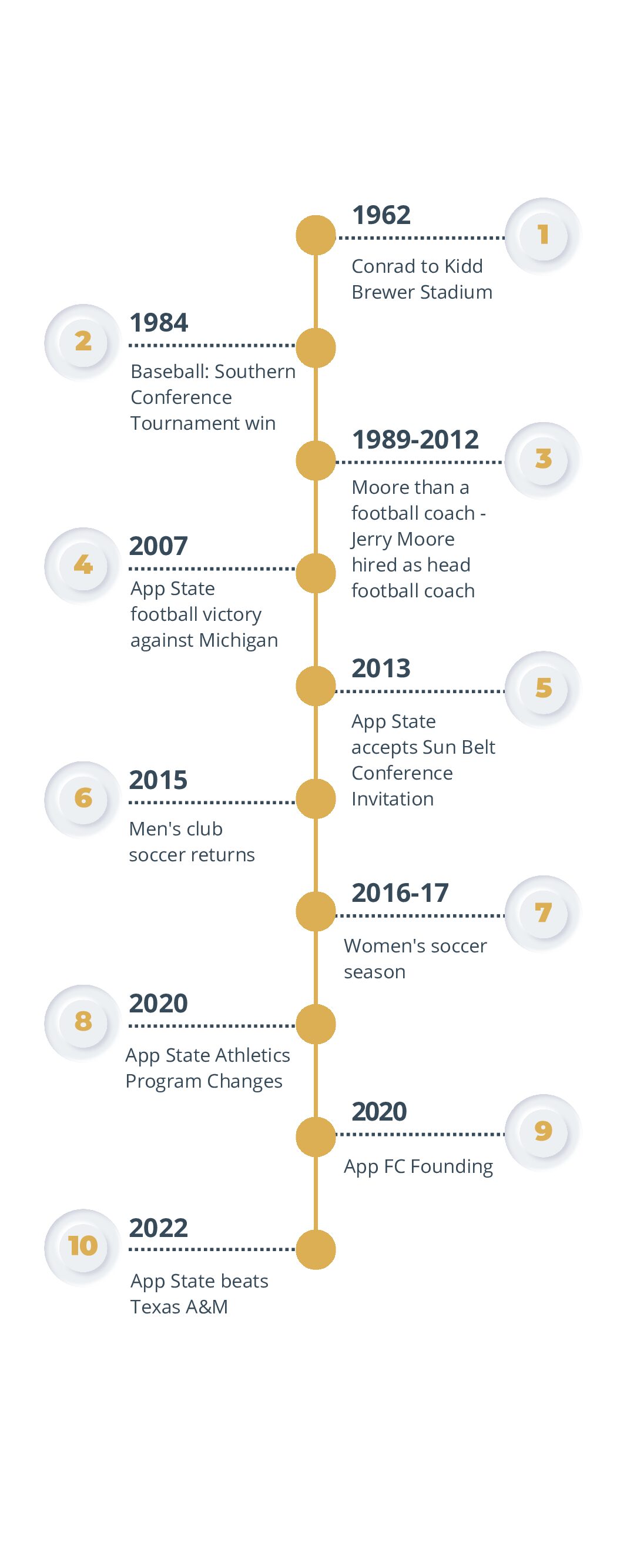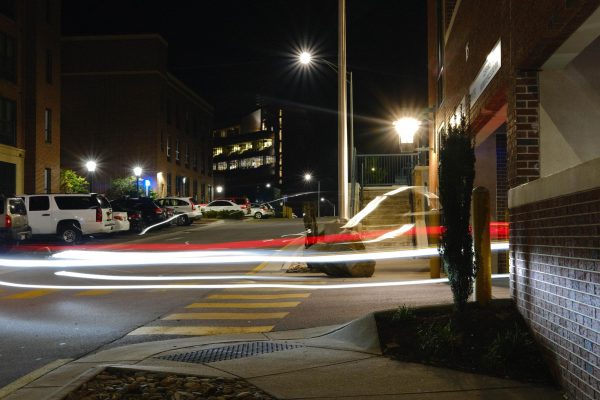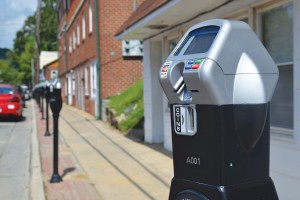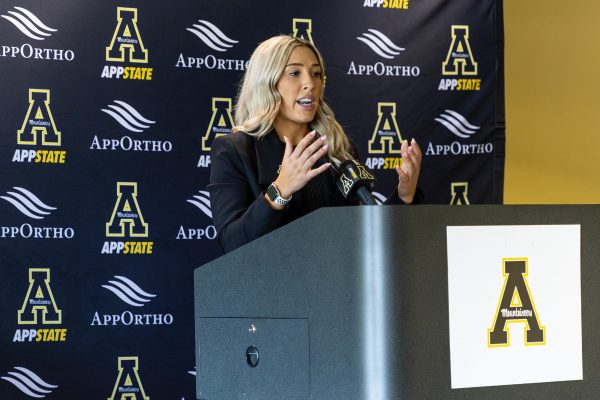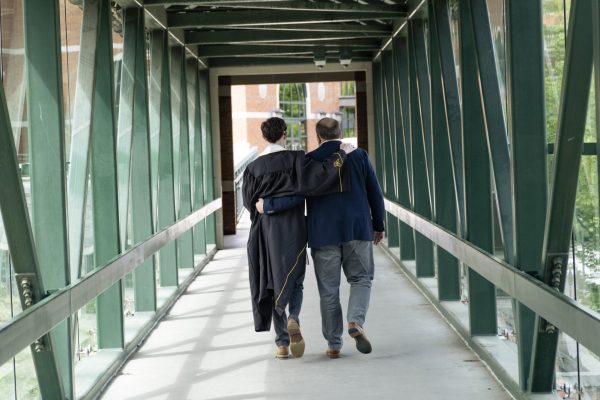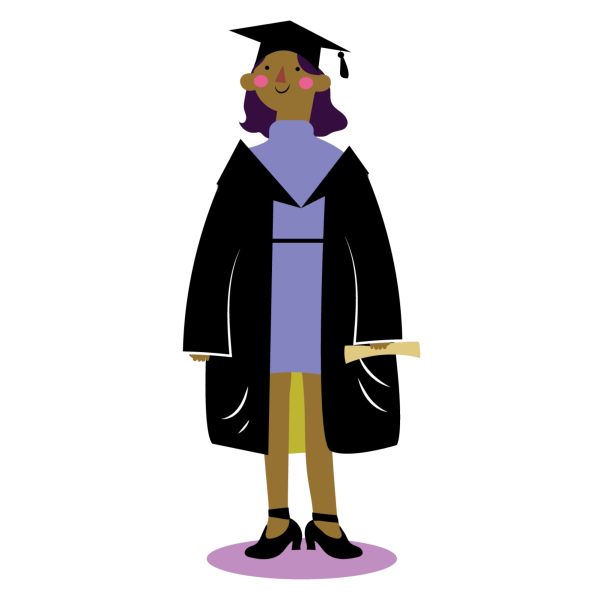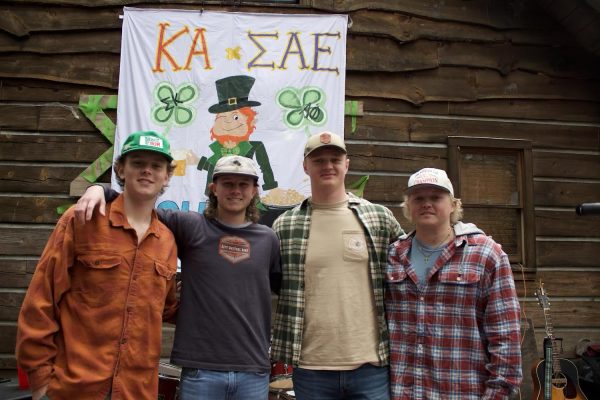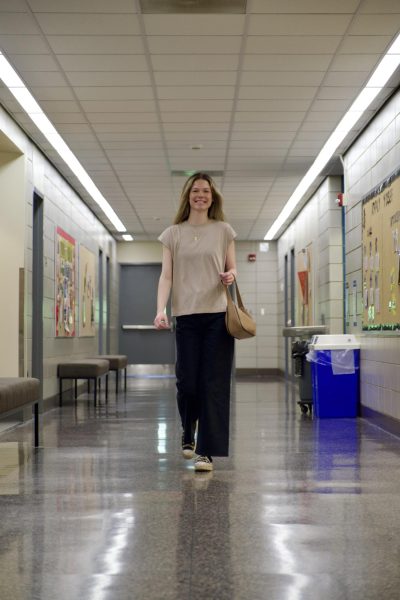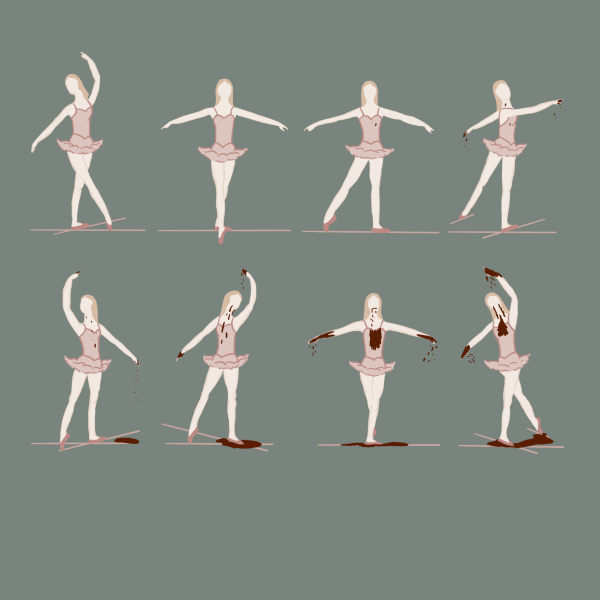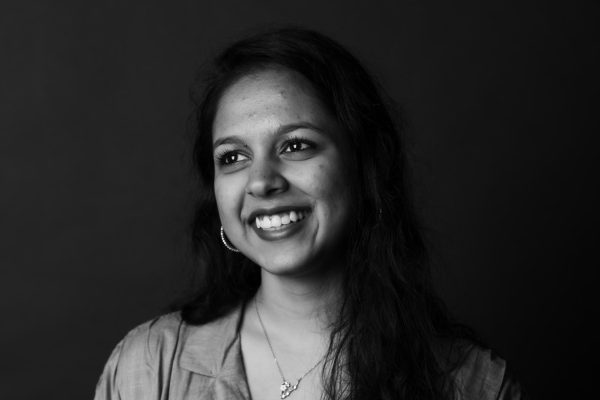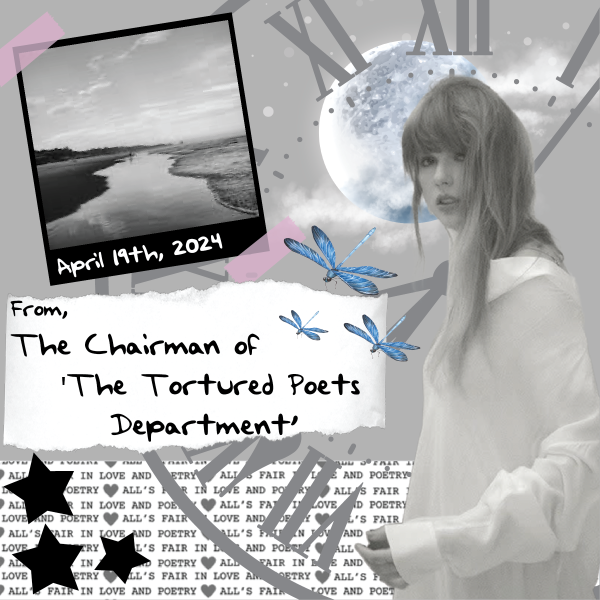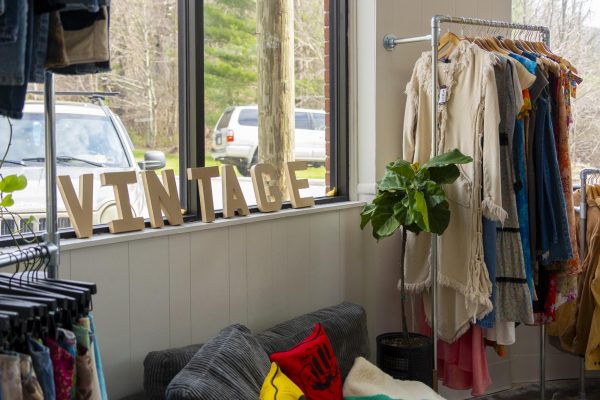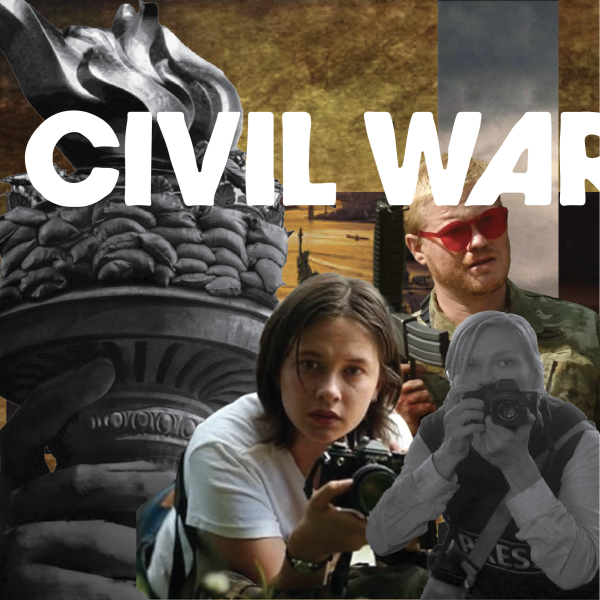Club for women of color provides mentorship, community service
Members of Queen In You pose for a portrait outside of Turchin Center for the Visual Arts. QIU serves young women of color by offering community service, social events and mentorships in professional etiquette and life planning.
February 9, 2022
Building community, professional development and empowerment are just a few goals of one club led by women of color.
Queen In You is a national organization with the purpose of advancing women of color through mentorship, social events, fundraising and community service. It was founded in 2016 by Noyah King, a senior criminal justice major at North Carolina Agricultural and Technical State University at the time.
Growing up, King was part of the National Junior League of Cotillions, where she learned skills in professionalism and etiquette. Realizing not everyone could afford the same opportunities, King started QIU as a way to mentor young women of color in life skills and professional development. QIU has chapters in several North Carolina universities.
Makaylia Ray, a junior communication sciences and disorders major, is the president of the App State QIU chapter, which was founded in 2018. Ray said she struggled to find a place to fit in her freshman year until a friend told her about QIU.
“Everyone needs a place to feel accepted,” Ray said. “It’s nice to sit down and once a week, see somebody who looks like me and discuss things that people understand.”
QIU meets for program planning and life advice discussions on topics like mental health, finances and professional development, including finding scholarships and creating LinkedIn profiles.
“That’s my favorite part about it,” said Cali Norman, a sophomore criminal justice major. “You can ask anything, literally anything, and someone is always there. Someone knows something. It’s really nice to be able to just have somewhere to go with no judgement.”
Norman said clubs like QIU are especially important for universities that are primarily white.
“At a PWI, it’s definitely hard to find your footing and feel like you belong and that people understand you and your perspective,” Norman said. “I think this is an important club for uplifting Black women and women of color, especially because we are a minority here.”
QIU hosts events that encourage women’s empowerment and build community, including karaoke, paint nights, game nights and a breast cancer fundraiser. Junior sociology major Jemiah Williams said her favorite event was the Celebration of Women’s Artistry, which allowed students to showcase their art and celebrate female artists. They plan on making it an annual event.
“It just basically celebrated women in art culture, so it was music, dance, fashion, painting and singing, and it was awesome,” Williams said.
One of QIU’s main focuses is creating a mentorship program with middle and high schools in the area, which they hope to start by next year. They plan to mentor young women, focusing especially on women of color, through QIU’s four pillars: self- vocalization, self-image, self-love and sisterhood. They also use the acronym POWER, which stands for professionalism, outreach, women’s voices, empowerment and resources.
“What we’re focused on right now is the high school specifically,” Ray said. “We want to make sure to give them access to college information, help with resumes and how to present yourself.”
They plan to partner with organizations such as Alliance for Women and Children, an after-school program that focuses on women’s empowerment.
“I think that clubs like this kind of provide that safe haven, that space for women of color to open up and discuss and find some kind of empowerment when maybe the world tells us that we’re not good enough,” Williams said. “It’s open for anyone to join despite race, so it’s really a good place to have that education and those critical conversations between people from different cultures.”

